We descended into Waingapu at the climax of a fiery sunset. Riding into town on the backs of two motos, we both thought: Yes. This is what we had in mind. Sumba is a short and inexpensive flight from Bali, but it may as well be a different universe.
Waingapu is the main city in East Sumba, and it's the market town
. There are few streetlights, and although it's not tiny, there's only one stoplight. Market stalls lined the street by our hotel, selling fruits, vegetables, grains, fish, and many unidentifiable goodies. While the market may appear chaotic, the goods are totally ordered: There is a tuber section, a legume section, a fish section, etc. While many of the stalls have light bulbs hanging over head, some operate under the yellow glow of kerosene lanterns and candles. On the sidewalk in front of the stalls, women seated on mats line the path, selling shelled peanuts by candlelight. As in Bali, most people travel by moto, though there are plenty of cars mixed in.
The next morning, we awoke with a mission: We wanted to get out to a village. We had already schemed a strategy. No strategy is needed to "get out to a village" - rent moto, drive to village. But we didn't want to gawk and move on, we wanted to talk to people and learn a little about the place. Feeling that we needed a pretense, we decided to explain that we're studying Indonesian, and as part of our studies we need to interview local people
. We carefully crafted about twenty questions, some general, some about the education system, and some about local agriculture and the environment (RPCVs will find this familiar!). Armed with the confidence that comes from having a purpose, we rented a moto and headed out.
A few things struck us right away as we motored up the hills outside of Waingapu. The first was the ecosystem: this was no lush tropical paradise. Dry, hilly grasslands stretched as far as the eye could see, with spines of green snaking up the valleys. The second was the lack of people. We had expected to see villages interspersed along the main road, but this landscape was practically empty. For miles, we passed few cars, and saw only the very occasional solitary house surrounded by fields of corn and other crops.
Eventually we arrived at the next town and the turnoff to the village we had in mind. At the turnoff, women stood by the roadside, selling ears of corn from kettles cooking over open flames
. Men sat on a table behind them chewing betel nut. The betel nut is a mild narcotic that turns the chewer's lips and teeth bright orange. All along our drive, people would flash huge smiles at us, but the dripping betel nut made it look more like a horror-film grimace.
We stopped for an ear of corn and confirmation of our direction. At 60 cents, the corn seemed relatively pricey. I understood why when the woman bagged up four ears for us! This was lucky, since the corn turned out to be our only lunch for the day.
We turned up the narrow but paved road to Pulupanjang. A few minutes in, the road became a rocky trail, and we slowed to a few miles per hour. In some places, the steep, rocky hills were too much for the little bike, and I walked while Shen rode up. It was a slow pace, and we nearly gave up several times. We were motivated by the gorgeous fields of wildflowers we were passing through, and by the everpresent optimism that is was probably right around the corner
.
Finally we reached a high point from which we could see the village. From above it was just a cluster of palm trees and a patch of green against the dry grassland. A few thatch roofs came into view as we got closer, and a tin roof glinted in the sun. We had barely rolled into town when we realized we were about to roll out of it, so we stopped. It wasn't long before we were surrounded by maybe a dozen people. We made small talk until a man named John invited us to tea.
Pulupanjang is tiny, about 500 people, and there's not much for a traveler to do but hang out, drink tea, and practice the language. So that's what we spent the afternoon doing. Shortly after our arrival at John's house, he offered us betel nut, the traditional way to greet visitors. Thankfully, he gave it to us in a way that seemed to imply, "I know you're not going to chew this stuff. This is just what we do." His wife brought out two cups of weak, very sweet "tea" that I think was Nescafe
. Conversation flowed smoothly, and we never felt compelled to explain our presence and break out the notebooks. We were still happy to have written the questions, though. Aside from giving us the confidence to go in the first place, they made for good conversation starters during lulls. After awhile we were joined by the Kepala Desa (village head), a wiry man with an obvious air of authority. He had a stern face but an easy smile, and he spoke Indonesian with the careful manner of someone who wants you to listen. He offered us a smoke (again, we were grateful to feel able to refuse) and asked us about America. We asked him about Pulupanjang, and about Sumba, and he pointed to places on our guidebook map and told us stories about them. We didn't come close to understanding everything, but we understood a lot.
We didn't want to go, but we had to return the moto and we had a long drive back. I wasn't planning to take any photos for fear of being a gawker. But before we left, there was some discussion that I couldn't understand. I soon realized that they were, with some exasperation, trying to get me to take a photo! So we took a few with promises to mail them once we got home.
We rode back at sunset, passing at dusk through the statues of spear-wielding horseback riders that flank the entrance to Waingapu. We've heard Sumba described as the "wild west" of Indonesia (even though it's in the east), and it does feel that way. Rolling grasslands, more livestock than people - and an interesting culture of which we just caught the faintest glimpse.
The Wild East
Sunday, June 19, 2011
 Waingapu and Pulupanjang, East Nusa Tenggara, Indonesia
Waingapu and Pulupanjang, East Nusa Tenggara, Indonesia
Other Entries
-
1Arrival
May 2822 days prior Nusa Lembongan, Indonesiaphoto_camera19videocam 0comment 3
Nusa Lembongan, Indonesiaphoto_camera19videocam 0comment 3 -
2Exploring the Nusa
May 3020 days prior Nusa Lembongan, Indonesiaphoto_camera15videocam 0comment 3
Nusa Lembongan, Indonesiaphoto_camera15videocam 0comment 3 -
3Kami belajar Bahasa Indonesia!
Jun 0316 days prior Seminyak, Indonesiaphoto_camera18videocam 0comment 3
Seminyak, Indonesiaphoto_camera18videocam 0comment 3 -
4New Friends
Jun 0613 days prior Seminyak and Lovina, Indonesiaphoto_camera9videocam 0comment 4
Seminyak and Lovina, Indonesiaphoto_camera9videocam 0comment 4 -
5Good time to go
Jun 109 days prior Seminyak, Indonesiaphoto_camera11videocam 0comment 0
Seminyak, Indonesiaphoto_camera11videocam 0comment 0 -
6Ubud
Jun 154 days prior Ubud, Indonesiaphoto_camera41videocam 0comment 0
Ubud, Indonesiaphoto_camera41videocam 0comment 0 -
7Bali-Bye
Jun 172 days prior Denpasar, Indonesiaphoto_camera11videocam 0comment 8
Denpasar, Indonesiaphoto_camera11videocam 0comment 8 -
8The Wild East
Jun 19 Waingapu and Pulupanjang, Indonesiaphoto_camera10videocam 0comment 2
Waingapu and Pulupanjang, Indonesiaphoto_camera10videocam 0comment 2 -
9Surf Camp
Jun 234 days later Kallala, Indonesiaphoto_camera17videocam 0comment 6
Kallala, Indonesiaphoto_camera17videocam 0comment 6 -
10Skipping through the village
Jun 267 days later Waikabubak, Indonesiaphoto_camera24videocam 0comment 0
Waikabubak, Indonesiaphoto_camera24videocam 0comment 0 -
11Interminable Ferries and Magical Lakes
Jun 3011 days later Moni, Indonesiaphoto_camera34videocam 0comment 0
Moni, Indonesiaphoto_camera34videocam 0comment 0 -
12Housewarming, Flores-Style
Jul 0213 days later Bajawa, Indonesiaphoto_camera48videocam 0comment 1
Bajawa, Indonesiaphoto_camera48videocam 0comment 1 -
13Komodo Part I: Land
Jul 0718 days later Labuanbajo, Indonesiaphoto_camera26videocam 0comment 2
Labuanbajo, Indonesiaphoto_camera26videocam 0comment 2 -
14Komodo Part II: Sea
Jul 0718 days later Labuanbajo, Indonesiaphoto_camera11videocam 0comment 0
Labuanbajo, Indonesiaphoto_camera11videocam 0comment 0 -
15Not in Kansas
Jul 1122 days later Jakarta, Indonesiaphoto_camera9videocam 0comment 2
Jakarta, Indonesiaphoto_camera9videocam 0comment 2 -
16Surf Extravaganza - Shen's Guest Post!
Jul 1829 days later Batu Karas, Indonesiaphoto_camera27videocam 0comment 7
Batu Karas, Indonesiaphoto_camera27videocam 0comment 7 -
17The Joys of Travel
Jul 1930 days later Yogyakarta, Indonesiaphoto_camera1videocam 0comment 3
Yogyakarta, Indonesiaphoto_camera1videocam 0comment 3 -
18Path to Enlightenment (or at least better grammar)
Jul 2233 days later Borobudur, Indonesiaphoto_camera39videocam 0comment 5
Borobudur, Indonesiaphoto_camera39videocam 0comment 5 -
19Visa Run
Jul 2334 days later Singapore, Singaporephoto_camera7videocam 0comment 1
Singapore, Singaporephoto_camera7videocam 0comment 1 -
20River Cruising
Jul 2738 days later Pangkalan Bun, Indonesiaphoto_camera49videocam 0comment 3
Pangkalan Bun, Indonesiaphoto_camera49videocam 0comment 3 -
21Into the Wild
Aug 0345 days later Kutai National Park, Indonesiaphoto_camera32videocam 0comment 5
Kutai National Park, Indonesiaphoto_camera32videocam 0comment 5 -
22Surf Safari - SHEN GUEST POST #2!!!
Aug 1052 days later Kuta, Indonesiaphoto_camera34videocam 0comment 2
Kuta, Indonesiaphoto_camera34videocam 0comment 2 -
23Honeymooning At Last
Aug 1456 days later Gili Meno, Indonesiaphoto_camera14videocam 0comment 3
Gili Meno, Indonesiaphoto_camera14videocam 0comment 3 -
24Happy Postscript
Aug 1658 days later Washington DC, United Statesphoto_camera4videocam 0comment 4
Washington DC, United Statesphoto_camera4videocam 0comment 4
Comments
2025-05-22
Comment code: Ask author if the code is blank

 Waingapu and Pulupanjang, East Nusa Tenggara, Indonesia
Waingapu and Pulupanjang, East Nusa Tenggara, Indonesia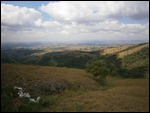
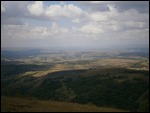
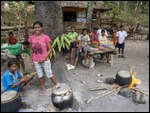
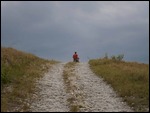
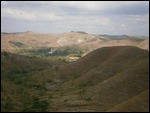



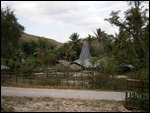
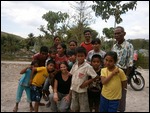
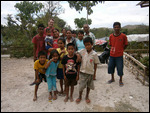
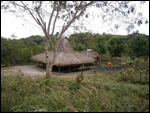
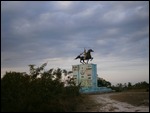
Jenn
2011-06-30
Jess, I freaking love this. You guys are the best RPCVs ever. Soooo impressed that you did this all in local language, and am imagining all the local lore to come about "the day the foreigners came to town". Love you guys!!
jesshiggins
2011-07-03
Thanks, Jenn! Just don't tell our parents that we're really just spending three months wasted in Bali! :-)